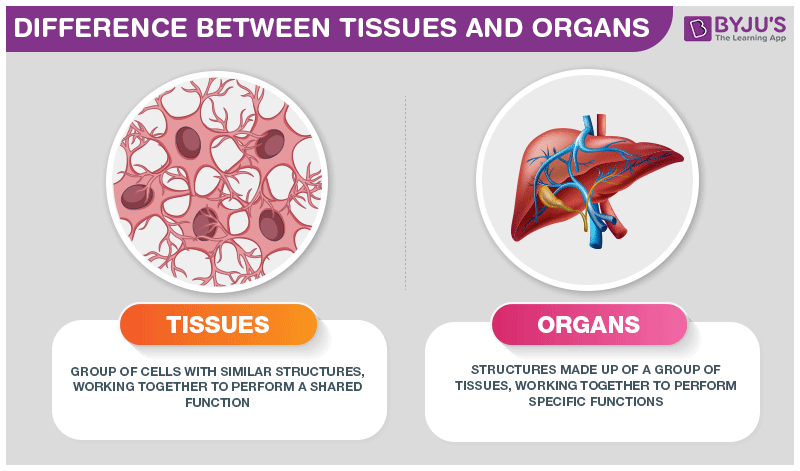All living things are composed of cells, and a group of cells form tissues. These tissues combine to form organs, and the organs form an organ system. The tissues perform simpler tasks, whereas the organs perform the complex functions of the body. The size of an organ is larger than the tissues and, therefore, requires more energy to perform the activities. Let s have a detailed look at the difference between the organs and tissues based on their structure and functions.

Tissues vs Organs
The following are the difference between tissues and organs:
|
Tissues |
Organs |
| Tissues are evenly distributed throughout the body and perform similar functions. |
Organs are made up of tissues and are organised and perform specific functions in plants and animals. |
|
These are made up of same type of cells. |
These are made up of same type of tissues. |
| Damage in the tissues can be repaired by the regeneration process. |
Repairing of tissues repairs the organs as well. |
|
They perform relatively simpler functions. |
Organs perform complex functions. |
| Types of tissues in animals usually include connective tissues, muscle tissues, epithelial tissues and nervous tissues. |
Lungs, heart, liver, kidneys are the different types of organs. |
Conclusion
Tissues are formed from cells that have similar structures and functions. Organs are formed from a variety of tissues, and they exhibit more complex functions necessary for life.
Related Links:
| Cell Structure |
| Bacteria |

Comments